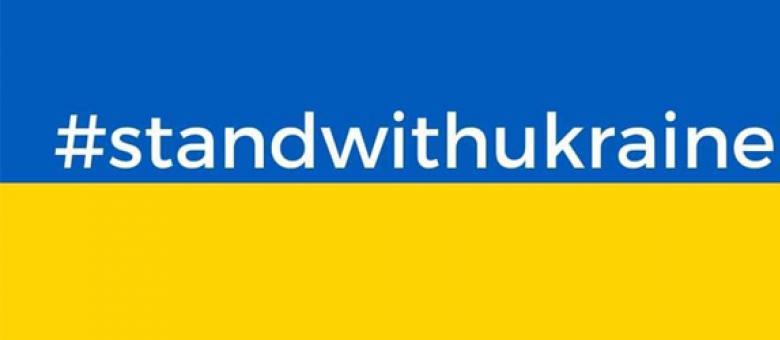
Kalender

The Politics of Memory as a Weapon - Perspectives on Russia’s War against Ukraine
Organisers:
European Network Remembrance and Solidarity
Federal Institute for Culture and History of the Germans in Eastern Europe, Oldenburg
in cooperation with
the Documentation Centre for Displacement, Expulsion, Reconciliation, Berlin
Registration for onsite and online event (free of charge): https://cutt.ly/politicsofmemory2023register
Streaming: https://www.youtube.com/@fluchtvertreibungversoehnung
Day One, 8 February 2023
12:30–13:00
Opening and introduction
Welcome:
13:00–13:30
Opening lecture: Andrii Portnov (European University Viadrina, Frankfurt /Oder), Rethinking memory studies at the time of war
13:30–15:00
Discussion panel: What should we have known about Russia and Ukraine before the war? The limitations of the European intellectual and political discourse
Moderator: Volker Weichsel (Journal “Osteuropa”)
Guido Hausmann (University of Regensburg), Martin Šimečka (Magazine “Respekt”, Bratislava), Marek Cichocki (College of Europe Natolin, Warsaw), Chantal Delsol (University Paris-Est Marne-la-Vallée)
15:00–15:30 Break
15:30–17:00
Discussion panel: Political approaches to Central and Eastern Europe
Moderator: Gemma Pörzgen (Berlin)
Andrej Kolesnikov (Carnegie Endowment for International Peace, Moscow) (online), Anna Kwiatkowska (Centre for Eastern Studies, Warsaw), Hans-Christian Petersen (BKGE, Oldenburg)
17:00–18:15 Break and optional guided tour of the exhibition of the Documentation Centre for Displacement, Expulsion, Reconciliation
18:30–20:00
Discussion panel: Russlands Krieg in der Ukraine – Zwischen Imperialismus und (Selbst-)Zerstörung? / Russia's War in Ukraine: Between Imperialism and (Self-)Destruction? (interpretation provided)
Moderator: Christoph von Marschall (Tagesspiegel)
Irina Scherbakova (Memorial, Weimar), Marieluise Beck (Zentrum Liberale Moderne, Berlin), Andrzej Nowak (Jagiellonian University, Cracow), Antoine Arjakovsky (Collège des Bernardins, Paris)
Day Two, 9 February
9:30–11:00
Discussion panel: European perceptual patterns and stereotypes of Russia and Ukraine (I)
Moderator: Jan Puhl (Der Spiegel)
Wilfried Jilge (Centre for International Peace Operations, Berlin), Maria Domańska (Centre for Eastern Studies, Warsaw), Elmira Muratova (Aarhus University), Alessandro Vitale (University of Milan)
11:00–11:30 Break
11:30–13:00
Panel: European perceptual patterns and stereotypes of Russia and Ukraine (II)
Moderator: Bartosz Dziewanowski-Stefańczyk (ENRS)
Burkhard Olschowsky (BKGE, Oldenburg), German Ostpolitik – traditional patterns and new approaches
Oldřich Tůma (Czech Academy of Sciences, Prague), On the crossroads of memory and politics: the Czech Republic and the Russian aggression against Ukraine?
Attila Pók (Institute of Advanced Study, Kőszeg), Hungarian perspectives on Ukraine and Russia
Juraj Marušiak (Slovak Academy of Sciences, Bratislava), Slovak perspectives on Ukraine and Russia
13:00–14:00 Lunch break
14:00–15:30
Panel: Culture and art in the face of the war
Moderator: Beate Störtkuhl (BKGE, Oldenburg)
Konstantin Akinsha (International Association of Art Critics, UK) (online), “You can’t go back to Constantinople”: fetishism of history as an excuse for looting of cultural property
Varvara Keidan Shavrova (Royal College of Art, London), The art of self-determination – how the creative communities in Ukraine and the Baltic States can resist the Russia's invasion’
Alina Mozolevska (Petro Mohyla Black Sea National University, Mykolaiv), Weaponisation of history in the visual discourse of Russia’s war in Ukraine
Olga Radchenko (National University of Cherkassy), Ukrainian and Russian film productions about the Second World War: potential and dangers
15:30–16:00 Break
16:00–18:00
Panel: Human rights and the war as judicial issues
Moderator: Arkadiusz Radwan (Vytautas Magnus University, Kaunas)
Vera Dubina (Forschungsstelle Osteuropa, Bremen), From memory law to memory war: abuses of history in contemporary Russia
Aarif Abraham (Garden Court North Chambers, Manchester), The Special tribunal for the crime of aggression committed in Ukraine
Kristin Bergtora Sandvik (University of Oslo), Transitional justice after empire? The politics of memory holes, doublethink and a shared future-time
Paula Rhein-Fischer (University of Cologne), Russia and the European court of human rights: A farewell in stages
Tetyana Sheptytska/ Mykola Bryvko (National Historical and Cultural Reserve “Bykovnyanskie Graves”, Kyiv) (online), The politics of memory of burial places as a tool of opposition to the Russian Federation
Day Three, 10 February
9:30–11:00
Panel: Russian and Ukrainian identity and history – weaponisation of history
Moderator: Annemarie Franke (ENRS)
Hans-Christian Trepte (Leipzig University), Kyivan Rus. Between myth and claim to power
Dieter Pohl (Klagenfurt University), The Origins of Russian official history discourse on Ukrainian nationalism (“Nazism”)
Jörg Morré (Museum Berlin-Karlshorst), The militarization of Russian historical research and education
Alexandr Osipian (Free University of Berlin), Weaponisation of the history of the Second World War in Russia-Ukraine conflict, 2014–2022
11:00–11:30 Break
11:30–13:00
Panel: Strategies and possible measures to combat disinformation
Moderator: Raphael Krüger (Berlin)
José Manuel López Torán (University of Castilla-La Mancha, Ciudad Real), Combating new era wars on digital battlefields: disinformation, propaganda, and social media in Russia's invasion of Ukraine
Malkhaz Toria (Ilia State University, Tbilisi), Russian disinformation, illiberal populism and struggles over solidarity with Ukraine in Georgia
Florin Abraham (National University of Political Science and Public Administration, Bucharest), Analysis of Romanian narratives about Russia's aggression against Ukraine: themes, actors and media tools
Łukasz Kamiński (Wrocław University), Combating disinformation: the role of historians
13:00 Closing remarks
Jan Rydel (Pedagogical University of Cracow), Matthias Weber (BKGE, Oldenburg)





